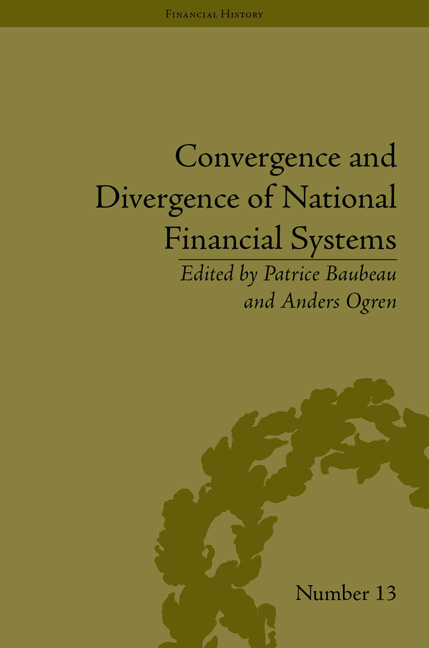 Convergence and Divergence of National Financial Systems
Convergence and Divergence of National Financial Systems Book contents
- Frontmatter
- CONTENTS
- Acknowledgements
- List of Figures
- Introduction
- Part I The Social Mechanisms of Financial Convergence
- Part II National Convergences and Divergences in the Long Term
- Part III Convergence and Historical Shocks
- 7 Determinants of National Financial Systems: The Role of Historical Events
- 8 The Financing of the Spanish Civil War, 1936–9
- 9 The London Financial Crisis of 1914
- Part IV Convergence and Monetary Constraint
- Notes
- Works Cited
- Index
9 - The London Financial Crisis of 1914
from Part III - Convergence and Historical Shocks
- Frontmatter
- CONTENTS
- Acknowledgements
- List of Figures
- Introduction
- Part I The Social Mechanisms of Financial Convergence
- Part II National Convergences and Divergences in the Long Term
- Part III Convergence and Historical Shocks
- 7 Determinants of National Financial Systems: The Role of Historical Events
- 8 The Financing of the Spanish Civil War, 1936–9
- 9 The London Financial Crisis of 1914
- Part IV Convergence and Monetary Constraint
- Notes
- Works Cited
- Index
Summary
On the eve of the First World War London was the world's foremost international financial centre, as it had been for more than a century. Other major financial centres developed from the 1870s, notably Berlin and New York, principally to serve their rapidly growing domestic economies though they also increasingly provided international services, as did Paris and Amsterdam, London's longstanding juniors. However, the operation of first mover advantages and powerful external economies of scale and scope ensured that London sustained a pre-eminent position. Thus the effect of the expansion of international trade and capital flows in the first era of globalization was both greater divergence in the provision of international financial services, but also the emergence of a complex multipolar pattern of convergence with London as the hub of a new financial web. The crisis that engulfed London in summer 1914 shattered the international network of financial relationships and also threatened to destroy the mechanisms of London's operations as a financial centre.
‘It came upon us like a thunderbolt from a clear sky,’ marvelled financial commentator Hartley Withers. ‘The fury of the tempest was such that no credit system could possibly have stood up against it’. Over the course of little more than a week London's key international financial markets broke down, threatening widespread bankruptcy among the specialist firms that operated in London's wholesale financial markets. The crisis also put at risk the domestic banking system and jeopardized sterling's convertibility into gold and its role in the international financial system.
The unprecedented scale and scope of London's financial crisis of 1914 was matched by unprecedented intervention in the financial system by the British state. The authorities mounted a series of novel initiatives to save the banks and revive the markets, including contemporary forms of quantitative easing, the removal of ‘troubled assets’ from the money market, and partial recapitalization of the banking system by government guaranteed loans at significant risk to taxpayers.
- Type
- Chapter
- Information
- Convergence and Divergence of National Financial SystemsEvidence from the Gold Standards, 1871–1971, pp. 161 - 178Publisher: Pickering & ChattoFirst published in: 2014


